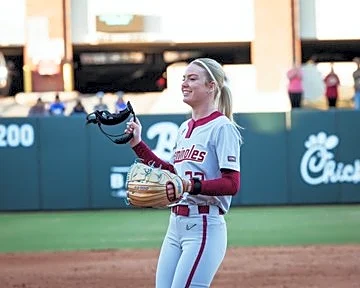What's Happening?
Several NHL superstars are reportedly open to exploring new team options as they approach the upcoming season with uncertain contract situations. Connor McDavid of the Edmonton Oilers, Kirill Kaprizov of the Minnesota Wild, and Quinn Hughes of the Vancouver Canucks are among the players whose futures with their current teams are unclear. McDavid, who has not yet re-signed with Edmonton, is considering all options, while Kaprizov has turned down a $128 million contract offer from Minnesota. Hughes is keeping his future open-ended, possibly as a negotiating tactic. These players hold significant leverage, with McDavid and Kaprizov having full no-move clauses, allowing them to control their potential team changes. The situation is creating a buzz among rival managers who may start plotting to acquire these game-changing talents.
Why It's Important?
The potential movement of these NHL superstars could significantly impact the league's competitive landscape. Teams acquiring players like McDavid, Kaprizov, or Hughes could gain a substantial advantage, altering playoff dynamics and championship prospects. The refusal of Kaprizov to accept a record-breaking contract suggests a shift in player power dynamics, where athletes leverage their market value and explore opportunities beyond financial incentives. This trend could lead to increased player mobility, affecting team strategies and fan engagement. The situation underscores the importance of strong team starts to retain key players and dampen speculation, highlighting the delicate balance between player satisfaction and organizational stability.
What's Next?
As training camps approach, teams will need to address these contract uncertainties to prevent distractions and maintain focus on the upcoming season. The players involved are expected to perform at high levels, especially in an Olympic year, but their openness to new opportunities may prompt teams to offer more attractive deals or explore trade options. Rival managers might intensify efforts to devise strategies for acquiring these superstars, potentially leading to blockbuster trades. The unfolding developments will be closely watched by fans and analysts, as they could reshape team rosters and influence league dynamics.
Beyond the Headlines
The willingness of NHL superstars to consider new teams reflects broader shifts in professional sports, where athletes increasingly prioritize career flexibility and personal goals over traditional loyalty to teams. This trend may influence younger players and prospects, encouraging them to adopt similar approaches to contract negotiations and career planning. Additionally, the situation raises questions about the effectiveness of long-term contracts and the evolving role of agents in securing favorable terms for their clients. The cultural and ethical dimensions of player mobility, including fan reactions and team loyalty, will continue to be debated as the league navigates these changes.










